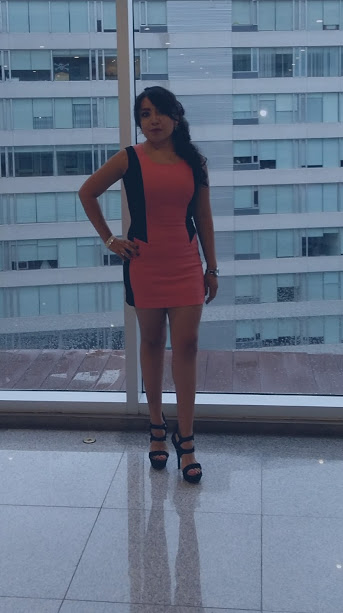“The way to the unknown”
I never considered myself vain enough to pursue beauty regimens with the aim of improving my physical appearance. I’m 28 years old, single, without kids. However, a number of physical things led me to a dermatologist in August 2018: stitches from injuries sustained in falls that did not heal, I bruised very easily and they were slow to disappear, and I had aggressive acne on my face as well as deep red stretch marks on my stomach. I attributed these to sudden weight gain. This dermatologist was the one who diagnosed me with likely Cushing’s syndrome. Without alarming me, he told me to see an endocrinologist. I read on the Internet about this rare disease and everything was consistent with what they described as symptoms.
I thought back and realized that my symptoms probably started two years prior to this moment with sudden weight gain and amenorrhea that I thought was due to my contraceptive method. I felt like I was killing myself in the gym and with a strict diet, but I did not manage to lose weight. In fact, the opposite – it continued to rise (12 kilograms in a year) along with other symptoms: acne, red stretch marks, loss of libido, chronic tiredness, high thirst, loss of vision, sensitive skin, bruising, difficult scarring, osteoporosis, high blood pressure, the famous moon face, excessive hair growth, and irritability. I could not do yoga, or ride a bicycle, or go to the gym. I was transforming quickly and I visited several specialists – gynecologists, gastroenterologists, and nutritionists – wanting to correct my bulging stomach. They even sent me pregnancy tests and I was diagnosed with gastritis, but no one figured out that Cushing’s was the cause for my symptoms.
When I finally went to the endocrinologist, he sent me to do studies to confirm or rule out this disease. We started with a 3T MRI and multiple blood tests – cortisol, sodium, potassium, hormones, thyroid. Unfortunately, all the studies were positive. Being honest, the doctor explained to me that the costs of treatment and surgery in the private sector would be very high, so he sent me to the Neurology and Neurosurgery Institute of Mexico City. He felt that this specialized hospital would be the best choice in the country to treat me.
I started the disease research protocol to be a candidate for surgery. I went through more cortisol tests – urine, dexamethasone, saliva, blood, and additional MRI, hormones, glucose, cholesterol, and thyroid. The most painful was the invasive catheterization IPSS, even with local anesthesia.
My surgery was on December 4, 2018. I expected to be discharged five days later, but things were complicated. I ended up with a CSF leak, so I was admitted to do studies again to locate where I had the leak and how they were going to repair it. Even though this is a fairly common risk with surgery, I was in the hospital for nine days so the doctors could seal the leak with a skin patch from my leg.
My mood was about as low as it could get, I had tubes coming out from all over my body, and the most painful was a lumbar drain to relieve pressure from the new leak patch. My veins were thin and weak but they still needed to take blood every 4 hours to monitor sodium and cortisol levels, in addition to two daily gasometries. They were hell.
A day after the procedure to repair the CSF leak, my face went numb. I told the nurses and the doctor in charge. However, they had other priorities, and the next morning, I woke up with fever; a few minutes later I slipped into a coma. I remember it as if it were a nightmare: I heard the doctors argue, they approached me and thumped me on the chest, it hurt, but I could not react, my mother was hysterical with the doctors. I heard that my condition was low cortisol or probably an infection in the brain, my head hurt a lot, it was hot and then cold, there was no way to react and say what I felt, a nurse gave me an injection in the stomach, I did not understand anything, I cried in pain and prayed to God to enlighten my mother. I had underestimated the surgery, I had read only successful cases without complications, but mine was not one of those.
I woke up after 32 hours of unconsciousness still with a headache, and I asked for the doctor. I vomited regularly until some of the tubes were eventually removed.
I think recovery is the hardest part of all this. I cannot walk, I cannot breathe, I shake, and I sneeze. I know my body will slowly get stronger again, and this is what gives me encouragement – that all the symptoms will be gone soon, and I will lose weight. My vision has improved and the acne is gone, the stretch marks are lighter, my memory and concentration are better and I’m recovering. I understand that healing can mean more than curing a disease, it means learning to live with it.
Helen’s Contact Info:






Sorry, comments are closed for this post.